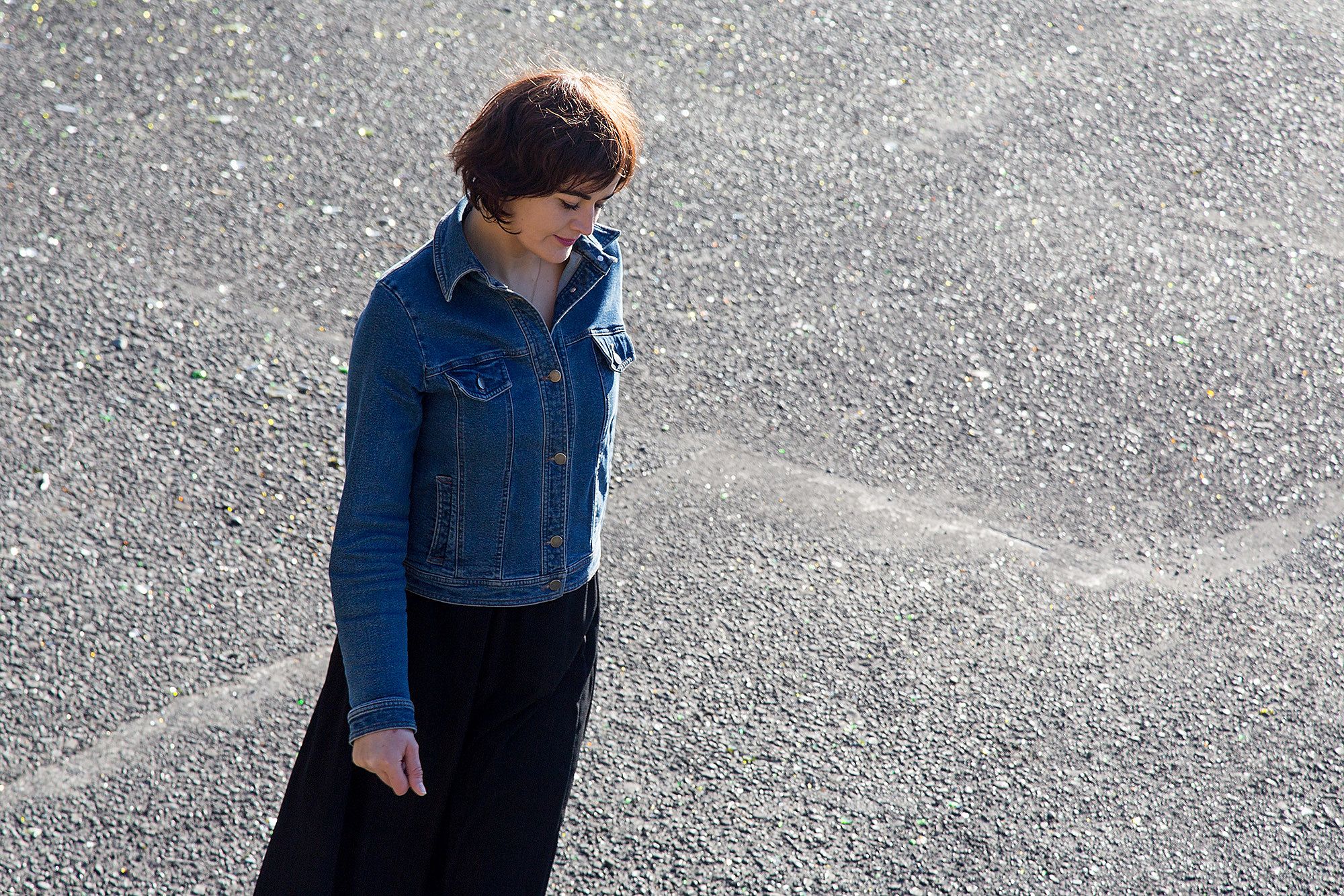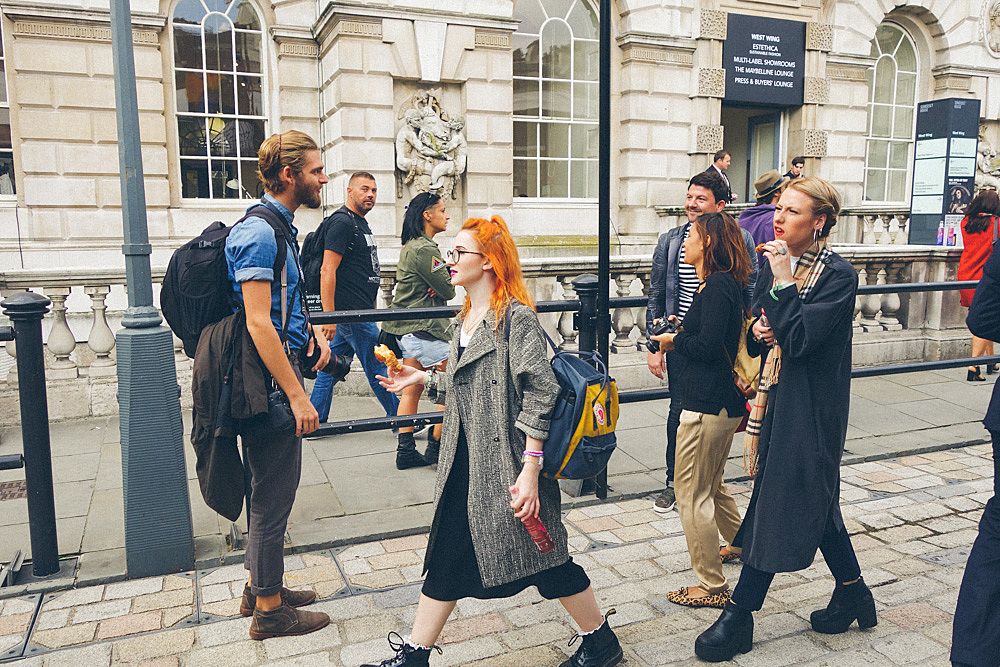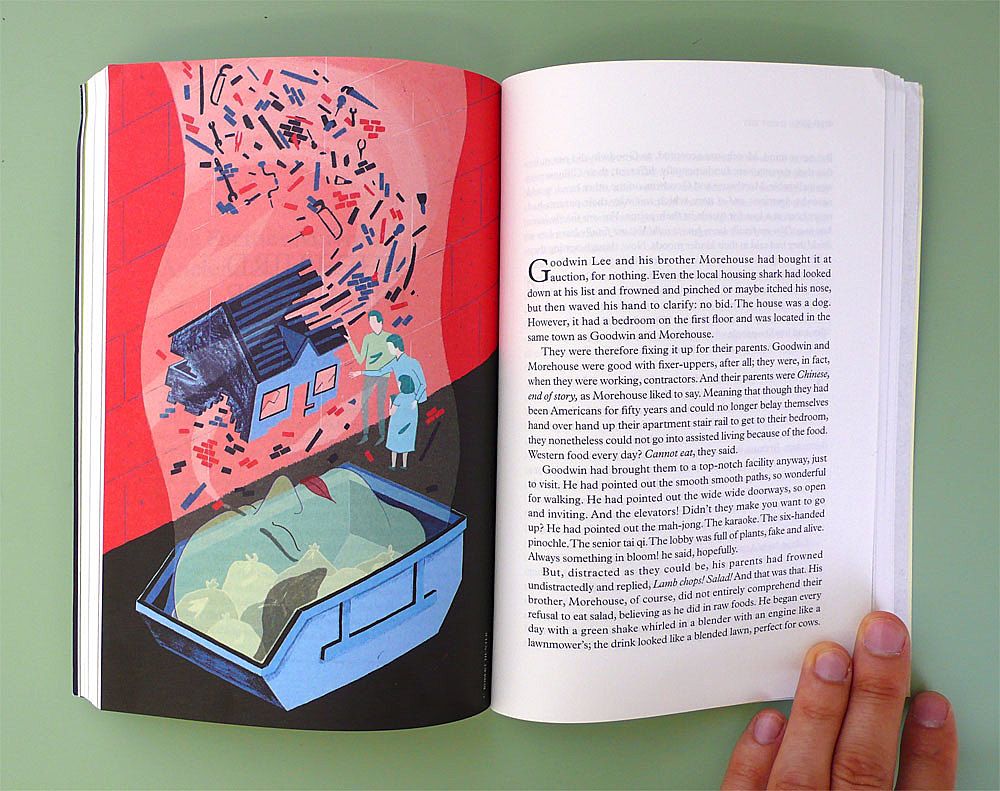Loose Canons: Ashleigh Young
Loose Canons is a series where we invite artists we love to share five things that have informed their work. This week's loose canon: writer Ashleigh Young
Loose Canons is a series where we invite artists we love to share five things that have informed their work. Meet the rest of our Loose Canons here.
Ashleigh Young's poetry and essays have been widely published in print and online journals, including Tell You What: Great New Zealand Nonfiction, Five Dials (UK) and The Griffith Review (Australia). Can You Tolerate This? is her second book; her first was the poetry collection Magnificent Moon (VUP, 2012). She works as an editor and tutors creative writing. She blogs sporadically at eyelashroaming.com.
Londoners by Craig Taylor
This is a compendium of people’s accounts of living and struggling in London. So, Craig Taylor went around the city and just talked to all sorts of people – a squatter, a sculptor, a paramedic, a dominatrix, a tube driver, a miserable financier and on – and then he put whatever they had to say for themselves into this book. It took him about five years to do it.
All of these people speak for themselves rather than being editorialised or filtered, so the book is essentially monologues (organised to clash as much as possible, I think) which together form a portrait of a city and, I guess, a social history. I love the cacophony of voices. Yet each voice is so distinctive. Some of the speakers seem slightly deranged (there’s an estate agent who raves on about ‘getting on the ladder’, like, “You need to be on the ladder in order to engage with the ladder” and “you must get on the ladder or it just flies away”); some are just so kind, or so tired from helping others. One of my favourite bits is a guy who works at a lost property office, and “once these two guys came in and said they had lost a swan.”
I’ve always loved hearing people’s life stories, but have never been great at drawing out these kinds of stories. Craig Taylor is gifted in that sense. The book isn’t just a social history but somehow also a demonstration of the art of asking questions and listening. On a kind of related note, one of my favourite things at the moment is Kirsten McDougall’s blog ‘What Do People Do All Day?’
Concerts
I know I should be using the word ‘gigs’ but to me they will always be concerts and will contain all of the majesty that the word implies. My first concert was Elton John. I must’ve been eight. Elton was helicoptered in, and I’m not quite sure if this is right, but I remember seeing the helicopter land near the stage and then this Mexican wave started travelling around the stadium, as if the wind of Elton’s helicopter was making the crowd actually ripple up out of their seats. I had this little pair of binoculars that my dad had given me so I could see Elton quite clearly – this tiny man sparkling around on the stage. I felt this bolt of visceral excitement and immediately started screaming. It was kind of like being stung or bitten by something. It’s a sort of excitement I’ve always felt whenever I’ve seen a musician or band I really love walk out on stage. It’s the realisation that they’re actual human beings, occupying actual space.
One of the greatest things I heard, as a teenager, was that my brother Neil, when at a Guns N’ Roses concert (I was too young to go), got right up the front and was able to reach out and touch Axl Rose’s boot. His boot! How could Axl Rose be made up of actual atoms? How could he have mass? Sometimes I feel like my life has been a series of deep, dreamlike obsessions with musicians. I remember seeing Nick Cave in 2005 (this was back when I was a fan), and my friend Morgan and I were sitting on a balcony above him. At one point in the concert Nick Cave looked up at us, and he looked right into our eyes for a few seconds. We both nearly turned ourselves inside out, screaming. I kind of love feeling out of control. I guess I’m drawn to any art that seems to stop time and draws all your feelings up to the surface.
The bush
I guess it would be better to call it ‘forest’ or ‘scrub’ or something. But we called it the bush. It was always a defined location. Going into the mass of trees and vines was fun when you were with other people but it was reliably frightening when you were by yourself. I had this fantasy of stumbling across a crashed UFO or being captured by aliens. I wrote a lot about the bush as a kid – one of the characters in my ‘novel’ was a hedgehog that with the help of a kingfisher learned to hang-glide so that it could travel beyond the bush – and when I described the bush it was always dark and mysterious, always ‘looming’, ‘waiting’, ‘seething’. The bush was so embarrassingly a metaphor for the unconscious, even though I had no idea about any of that.
Brothers
Many of the books and pretty much all of the music I liked when I was younger was channelled to me from my two older brothers. So it was all Dean Koontz and Tolkien and Melville and Led Zeppelin and Nirvana and Smashing Pumpkins. I was always nervous to bring any music into the house that hadn’t yet received their seal of approval. Also, most of the bands we listened to had male vocalists. I remember buying the Romeo + Juliet soundtrack because I loved the Garbage song ‘I Would Die For You’ and I adored Shirley Manson. But when I played it, my brothers were scathing (except for when the Radiohead track came on) and I felt so self-conscious that I had to stop playing it. The music you loved, the books you loved: that was who you were. I don’t believe that as totally as I used to, but I still do a little bit.
Granta
I was in Harry Ricketts’s creative nonfiction workshop years ago, and one day he brought in this big pile of Granta magazines, dumped them on the coffee table and told us to borrow whatever we wanted. Each Granta is a fattish collection of essays, short stories, photo essays, poems, sometimes interviews. On the coffee table there was an issue about family – each issue is loosely themed – and it was called ‘They fuck you up’. I was sold.
I went crazy on Granta and read as many of them as I could get my hands on over the next year. I was excited by all of the voices in there and I liked being pulled all over the place by them – it gave me a strong feeling of possibility for my own writing (maybe it was a bit like Londoners in that sense). Every issue I’d discover someone who I immediately loved, like Janice Galloway, Gary Shteyngart, Masha Gessen, Ryszard Kapuscinski. The other reason I liked Granta so much was that it tended towards dark subjects – things that are difficult, often risky, to articulate. I had dark-ish stuff I wanted to write about too.
To be honest a big reason I like Granta today is to do with reader’s guilt and the feeling of never being able to catch up. In Granta you get a single potent shot of what the cool kids are doing. And because it only comes out four times a year, you have time to read each issue properly, so you don’t have to relegate it to The Big Pile and feel guilty about it. Guilt is a major problem with some magazines and journals because they come out too often and you can’t catch up. Literary publications need to be realistic about how much more guilt their readers can physically deal with.
Can You Tolerate This?
Available from VUP





